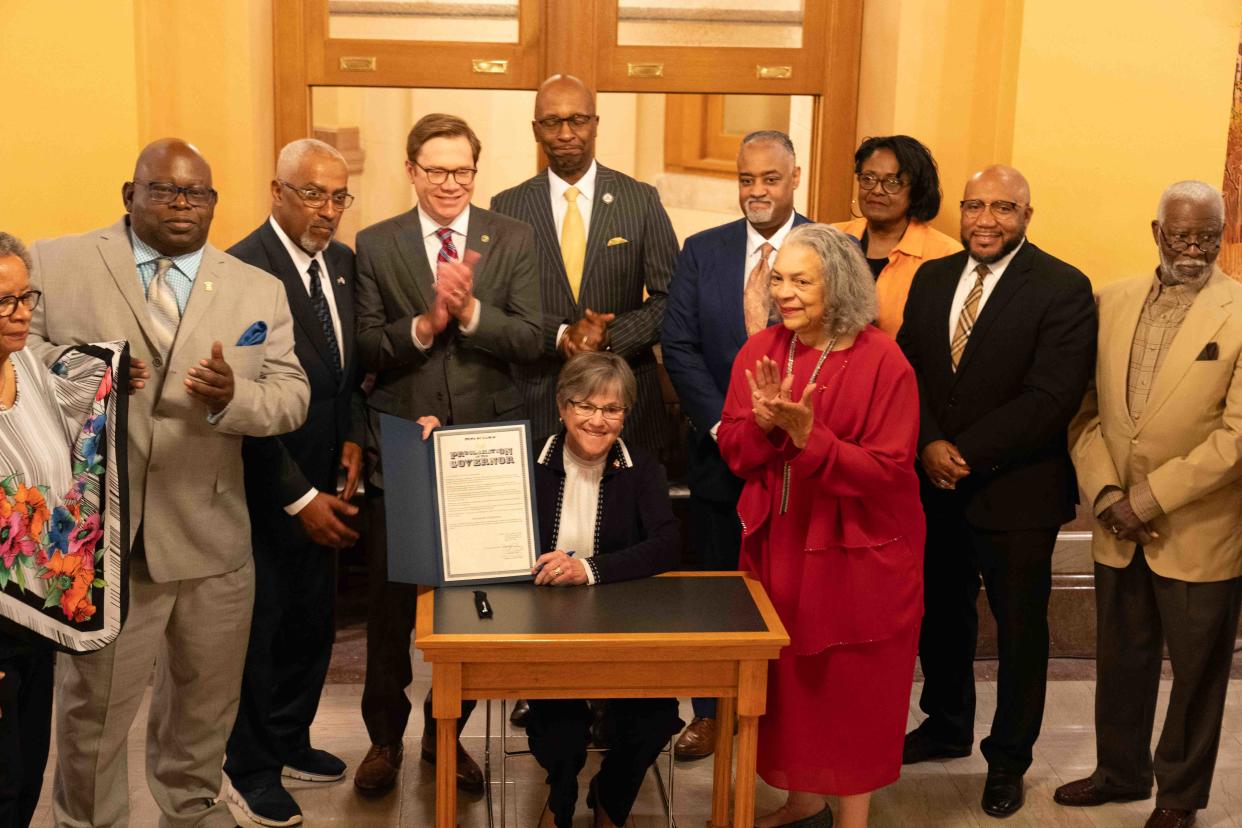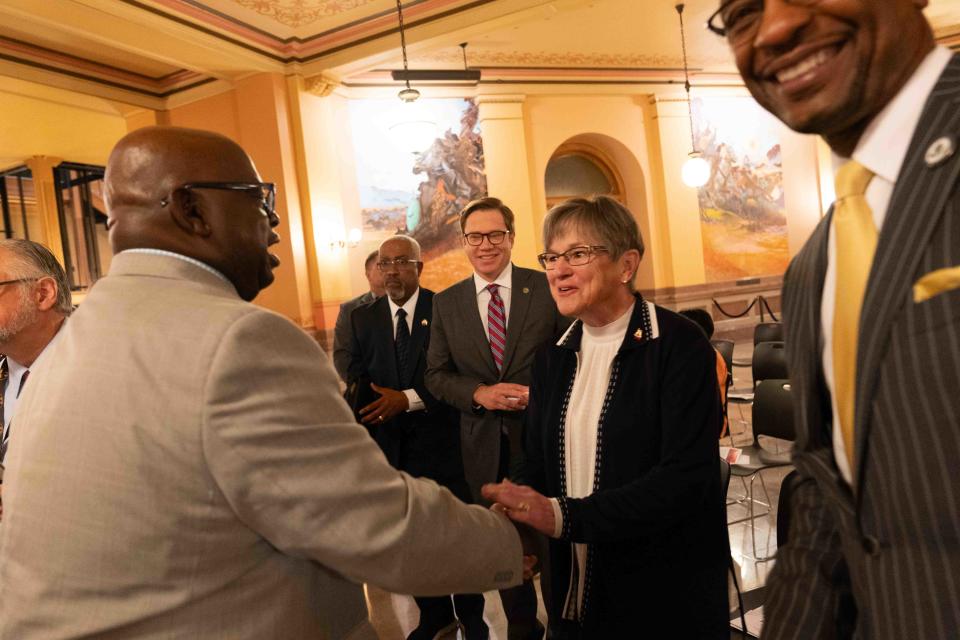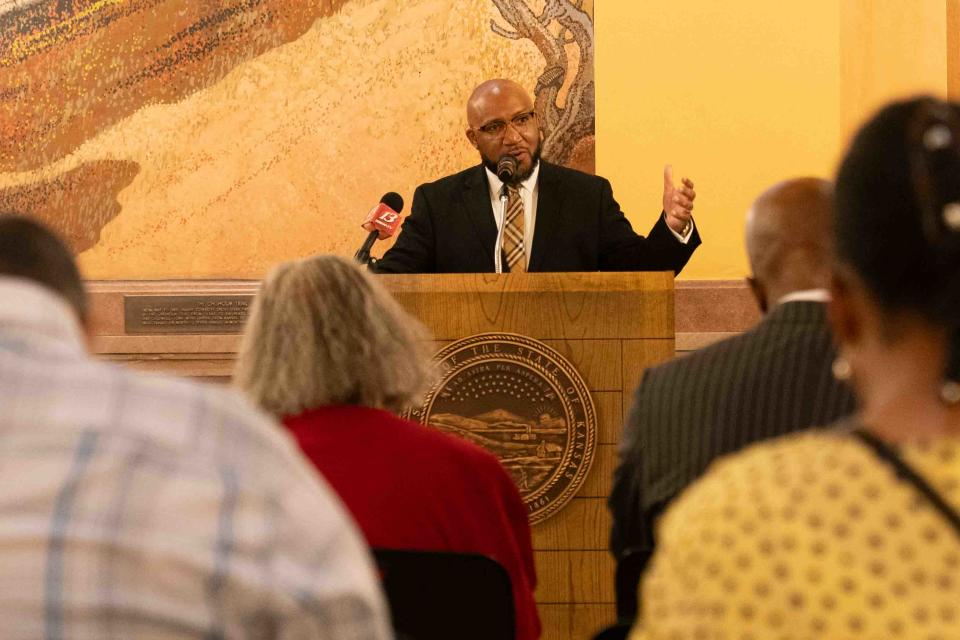Kansas officially observes Juneteenth, the nation's 'second Independence Day' at Capitol

- Oops!Something went wrong.Please try again later.
People gathered Monday singing "Lift Every Voice and Sing" in the Statehouse rotunda as they commemorated Juneteenth.
After a declaration from Gov. Laura Kelly, this year's Juneteenth marks the first time Kansas will officially observe the holiday.
However, Kansas African American Affairs Commission executive director Stacey Knoell told audience members this is not the first celebration of Juneteenth in the state. She recognized multiple Kansas cities that have celebrated the holiday for many years.

The first official state observation in Kansas
Juneteenth, a holiday celebrating the liberation of slaves on June 19, 1865, became a federal holiday in 2021 after President Joe Biden signed into law its recognition.
Then in October Kelly declared Kansas the 29th state to recognize Juneteenth as a state holiday. She has recognized the holiday since 2020 by issuing proclamations. However, it wasn't a formal public holiday, meaning state employees didn't get the day off.
"As we celebrate Juneteenth, we need to also recognize the way Black Kansans have pushed forward and been a force in our nation on the path to freedom," Kelly said. "They are Black Kansans like Gwendolyn Brooks, Langston Hughes, and Aaron Douglass who shaped the Harlem Renaissance, elevating the image of Blacks from caricatures to enlightened contributors to American culture and entertainment."
Kelly also said it is important to recognize our history and celebrate our freedoms or else history may repeat itself.
"Today there are some who try to minimize those contributions, to rewrite or eliminate certain parts of history," Kelly said. "If we do not face and learn from our history, we are bound to repeat it."

America's second Independence Day
Keynote speaker Anthony Lewis said when the Fourth of July was celebrated early on it was not considered a day of independence for those enslaved.
"Frederick Douglass gave a keynote address, an Independence Day celebration held at printing hall in Rochester, New York and asked the question, what to the slave is the Fourth of July," Lewis said as his voice reverberated through the halls of the statehouse first floor.
Lewis said Juneteenth is considered a second Independence Day and a call to action because the work is not done.
"The significance of Juneteenth rose beyond just this historical event itself," Lewis said. "The historical legacy of Juneteenth shows the value of never giving up hope in uncertain times. It symbolizes the resilience of strength, the determination of the African American community in the face of adversity and oppression. We acknowledge the Black injustices of slavery, but also the resilience, the strength and the perseverance of African Americans who fought for their freedom and continue to strive for equality long after the shackles of slavery were removed."
This article originally appeared on Topeka Capital-Journal: Gov. Laura Kelly officially recognizes Juneteenth at Kansas Statehouse

